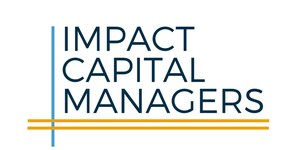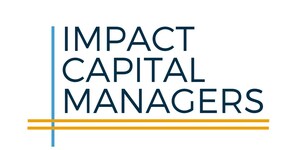New Study by Impact Capital Managers and Morrison Foerster Shows Almost Two-Thirds of Impact Exits Meet or Exceed Financial Performance Expectations
Latest "Alpha in Impact" report explores how an impact investment approach can generate alpha for investors; highlights growing suite of impact-specific legal tools used during exit
NEW YORK, May 8, 2023 /PRNewswire/ -- ICM Institute, a nonprofit research arm of the Impact Capital Managers (ICM), a membership association of leading private capital funds, together with leading global law firm Morrison Foerster, today published a new report, "Strengthening Outcomes: Impact and Financial Value at Exit," that shows almost two-thirds (65%) of impact exits meet or exceed financial performance expectations. The first-of-its-kind study draws on a sample size of 230 exits from ICM members, each of which manages a market-rate impact fund and is therefore uniquely positioned to provide data and insights into the success of impact exits and the key drivers of that success.
This report is the second in a series that explores different aspects of impact investing and how an impact-focused approach can generate alpha for investors. The first "Alpha in Impact" report, published in December 2018, showed that a social and environmental focus on investment management can boost financial returns and proposed 10 unique drivers of "impact alpha," defined as impact objectives that can enhance or add financial value for fund managers, investors, and the firms in which they invest. ICM also published a related report with Morrison Foerster in April 2021 that focused on "Legal Innovation in Impact Investing" and explored the variety of legal tools and processes used by private capital investors to protect and enhance investments.
The continued growth in impact investing has led to a parallel increase in exits by impact investors. As of 2022, private markets investors managed US$322.2 billion in impact investments, a growing portion of which is nearing a potential exit as more impact funds reach maturity. Many general partners (GPs) have made impact commitments to their limited partners (LPs), whether in their main fund documents or in side letters with impact-focused LPs. The need to comply with such mandates, achieve impact goals, and protect the mission orientation of companies has led to increased attention to the structuring of exit events.
Key Findings
ICM Institute analyzed 230 exits and found that 42% outperformed financial expectations, 23% were "at target," and 35% underperformed. The figures are similar when it comes to impact performance, with 42% outperforming impact expectations, 39% "at target," and 19% underperforming.
More than half (57%) of these exits resulted in a sale to a strategic buyer such as a corporation, followed by a financial buyer (23%). Ten percent of exits analyzed were categorized as liquidations, and IPOs accounted for eight percent of exits. A remaining three percent of exit types were categorized as "other."
Investors' impact goals were met or exceeded in 81% of exits, reflecting a slightly higher level of performance in impact as compared to financial performance. In case study interviews, respondents described the importance and preference for mission-aligned, strategic buyers to ensure that the company's impact and mission were protected after exit.
The report also includes 11 deep-dive case studies featuring specific ICM member portfolio companies, three of which focus on how instituting employee ownership structures can drive both financial returns and impact. Members whose impact exits were featured in the report include: TPG's The Rise Fund, HCAP Partners, SJF Ventures, Achieve Partners, Energy & Environment Investment, Pangaea Ventures, New Markets Venture Partners, Lime Rock New Energy, KKR, and St. Cloud Capital.
Marieke Spence, Executive Director of ICM, commented: "The findings of this study put private capital impact investing on a competitive footing with traditional, non-impact approaches. They suggest that thematic investing may not necessitate a tradeoff with financial return, and that in some cases, investing with an impact lens may in fact be a competitive advantage. While every impact exit will have distinct features, this report adds to a growing body of evidence demonstrating that alpha can be found in impact."
Susan Mac Cormac, corporate partner at Morrison Foerster and co-chair of the firm's ESG, Social Enterprise and Impact Investing, and Energy practices, said: "Impact investors and all market participants should be encouraged by these findings. Our study shows that it is certainly possible to structure an exit event that not only achieves an investor's impact goals but meets or exceeds financial expectations and avoids greenwashing. As exits involving impact investing have become more prevalent, the sophistication of effective legal tools to protect impact at exit has evolved as well. Impact investing in the private markets can and should result in positive outcomes, both for the investor and for society at large."
Mark Berryman, Managing Director of Impact Investments at Caprock, added: "As an impact investor, I'm thrilled to see ICM's latest Alpha in Impact report, 'Strengthening Outcomes: Impact and Financial Value at Exit.' The study provides valuable new data and context that highlight the success of impact managers generating both financial returns and positive social and environmental outcomes. With its impressive network of over 100 private capital investment funds—collectively representing over $60 billion in impact-focused, market-rate return capital—ICM is uniquely positioned to analyze this data and disseminate the results. I'm confident this evidence of the network's members delivering competitive returns while driving positive impact will mobilize even more capital to impact investing."
The study identified the following key drivers that influenced both financial and impact exit outcomes for ICM portfolio companies:
- Competitive advantage in funding rounds. Impact firms are branded as better long-term partners with more patience around the exit process and frequently have thematic or industry-specific expertise valued by company management.
- Unique impact frameworks. These frameworks guide portfolio companies toward targeted objectives and can increase the value of a company.
- Scaled impact-driven business segments. Impact investors help management to focus on and scale specific business lines or activities that exhibit collinearity of impact with financial return, leading to financial growth.
- Rigorous impact reporting that serves as a strategic tool during exit, by demonstrating impact as a significant component of portfolio company value.
- Attraction of unsolicited offers from strategic buyers interested in the historical impact-driven growth of the company and who see it as a future driver of financial success.
- Strong management teams. Impact investors share deeper mission alignment with company leadership and, when considering exit options, tend to prioritize buyers who will value continuity of impact-driven leadership in their offer.
- Impact governance guidelines. Legal tools like impact-specific covenants, incorporating impact governance into the board structure, creating separate entities focused on impact measurement and reporting, or maintaining a board position post-exit, can all codify and preserve impact.
The report also looked at the various legal options available to fund managers that want to optimize both impact and financial performance. Both buyers and sellers are embracing different legal provisions and tools to assist in structuring exit events, whether it is in connection with a private or public sale, IPO, or direct listing. Not only can these tools help substantiate an investor's impact goals and commitments to their LPs, they can also help investors avoid accusations of "greenwashing" by showing how impact is embedded in deal structures.
These tools vary on a deal-by-deal basis, depending on factors such as investment objectives, whether an investor has a majority or minority stake in the portfolio company, whether an investor will retain a stake in the company after the exit event, and market conditions. Some "softer" protections include highlighting a company's mission in information memos and conducting reverse impact diligence on potential buyers, with the aim of identifying mission-aligned buyers. Investors have also worked with companies to adopt new corporate forms, such as the Delaware Public Benefit Corporation, which can help ensure that, even after an impact investor exits a company, the board will still be required to consider the company's mission and impact on the world. In addition, some investors have begun to include covenants in definitive transaction documents related to a company's impact, with penalty payments that can be triggered in the event the buyer breaches the impact covenants.
Research Methodology and Background
The research began in March 2022 via the dissemination of a survey to the full ICM membership asking them to list completed exits. The survey also included questions about the specific industries in which exits were pursued, types of exit (e.g., IPO), perceived performance of exits, and what drove that performance. Full or partial responses were collected from 30 firms, which yielded information for approximately 230 exits. General partners at the 30 firms were also invited to participate in interviews with the research team, where they were asked to share insights and lessons learned from prior impact exits, including those that underperformed.
ICM Institute Fellow Divya Walia, a 2024 MBA/MIA Candidate at Columbia Business School and SIPA, was the lead author of the report. This study builds on prior research by leading industry organizations, including the International Finance Corporation (IFC), Cambridge Associates, Wharton Social Impact Initiative (now ESG Initiative), Global Impact Investing Network (GIIN), and McKinsey & Co.
About Impact Capital Managers and the ICM Institute
The Impact Capital Managers mission is to accelerate the performance of its members and to scale the private capital impact investing marketplace with integrity and authenticity. The organization accomplishes this through its membership association, which includes 100+ funds representing more than $60B in impact-focused capital, and through collaborating on field-building initiatives, partnerships, and research with its affiliated organization, the ICM Institute. As part of its commitment to grow the marketplace with integrity, association members must meet certain criteria including standards on impact measurement and management. The ICM Institute is a proud organizer of the Mosaic Fellowship and with Achieve Partners, producer of the Better Money, Better World podcast. For more information visit www.impactcapitalmanagers.com.
About Morrison Foerster
Morrison Foerster is a leading global law firm. We are proud to develop pioneering legal innovations related to ESG for over 20 years, and offer unmatched industry-leading experience to assist social enterprises and investors that require market rate returns while preserving impact. In addition to our deep commitment to pro bono (approximately $7 million in services for climate in 2022), our clients include the strongest public and private companies as well as private equity funds, impact investors, and NGOs. We represent organizations as they grow, innovate, disrupt, and develop into leading industry players and household names. Our attorneys are at the vanguard of the ESG evolution as founding members of the Social Accountability Standards Board, and on the boards of Ceres, Business for Social Responsibility, and the United Nations Environment Programme Finance Initiative. In 2022, Morrison Foerster was recognized with the Environment & Sustainability: Innovation Award at the Chambers Diversity & Inclusion Awards. As the sole recipient of this award, this recognition reflects our position as the preeminent ESG firm in the United States. Additionally, Morrison Foerster was recognized as one of the top 10 firms on The American Lawyer's A-List for 2021 and 2022, highlighting the firm's commitment to client service, leadership in market-changing deals and impact litigation, and values-based culture. For more information, visit www.mofo.com.
Media Contact: Dmitriy Ioselevich, 17 Communications, [email protected]
SOURCE Impact Capital Managers

WANT YOUR COMPANY'S NEWS FEATURED ON PRNEWSWIRE.COM?
Newsrooms &
Influencers
Digital Media
Outlets
Journalists
Opted In




Share this article